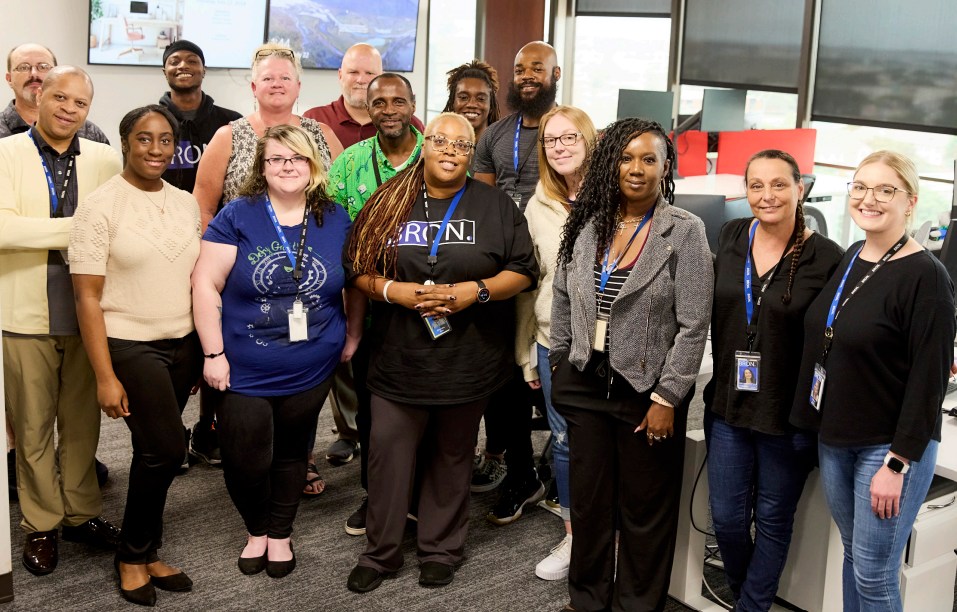This piece originally appeared in the August 2024 edition of MortgagePoint magazine, online now.
In any line of business, there is always competition for the required services and problems that must be solved. One key way to differentiate oneself and find a path to success is to seek out a niche where those needs are not being addressed, where the work is complex or tedious or highly technical—the sorts of roles not every company is equipped to fill or wishes to expend resources on, but which still need to be done. These areas allow a company to rise to the occasion and fill a specific niche.
It’s in one of these areas that Bron, Inc. has found its lane.
Founded in 2013 with a focus on compliance-related issues and processes, Bron now focuses on several core business lines:
- Vacant, Foreclosure, Rental & REO
- Registrations: Utilizing its extensive database of municipal data, Bron works to indemnify clients against any fines, penalties, and late fees that could accrue for their properties.
- Utility Activations, Disconnects & Account Maintenance: Bron handles utility activations/deactivations, coordinates with property preservation vendors, maintains accounts and payments, verifies utility balances, and ensures no late fees will be assessed.
- HOA Verifications/Super Lien Protection: Determine if a given property is subject to an HOA, confirm the status of HOA payments, and handle communication to prevent HOA foreclosures.
Kevin Hamilton, CEO of Bron, told MortgagePoint, “Our specialty is focusing on the things that other people don’t do, or don’t do well. For the people that are our competitors, this is only a small portion of their revenue. Registrations, utilities—that’s everything to us, and we back our product. We have clients that have been with us over 11 years, and in the 11 years that they’ve been with us, they’ve never had a fine, fee, late charge—nothing in 11 years with loans under our care.”
Todd Imwold, Bron’s COO, added, “A lot of companies do [registrations], but that’s our specialty. Utilities: many companies do them, but that’s one of our specialties. You’ve got the clients, you’ve got the municipalities, you’ve got utility companies—it may take a lot of conversations to get something resolved. That’s the space we want to work in.”
Find a Need, Fill a Need
In its current form, Bron owes its origins to Kevin Hamilton seeing an opportunity to address a need that he didn’t believe was getting the attention it deserved. Prior to 2013, Hamilton had worked at several large national mortgage servicers. While in this role, Hamilton got his first municipal violation and fine on a property, which he says opened his eyes to this sometimes-overlooked aspect of compliance. “I took the fine, I threw it in my drawer, and I said, ‘This wasn’t us.’
Then I got a second one and thought, ‘Maybe this is something I need to look into.’” As he navigated through trying to figure out where the breakdown had occurred and how to prevent future instances, he began to understand that while this was a comparatively small area of risk in 2013, it had the potential to become much more problematic as the number of municipal ordinances continued to increase in the years following the 2008-2009 housing crash.
“The first thing that happens with defaults is people stop paying their property taxes,” Hamilton said. “That segues into the biggest challenge we have, too, which is the volatility of these municipalities. The rules they come up with, how they enforce them, and what you need, are ever-changing. Even with our database, we must stay on top of it, keep up with it, and make the rules according to it. At the end of the day, the burden of proof is always on us.”
Most companies don’t want to handle these issues internally, Hamilton explained, because it’s a time-consuming and expensive process. “It’s millions of dollars to build a database,” explained Hamilton—and building it is just the first step. It also must be maintained and kept current.
Hamilton assembled a business proposal to build out a business unit to handle these issues of registrations and utilities, but he was met with minimal interest. Believing he had the makings of something important, he reached out to his colleague Eric Moore, now Bron’s Chief Information Officer. At the time, Moore was “one of the top REO producers in Southern California.” Hamilton called Moore up and asked, “Hey, do you know anything about this?” Through their discussions, the two developed a process and decided there was a potential business here, because, as Hamilton noted, “people need this.”
Hamilton predicted that as default rates increased, it could create even more opportunities for municipalities to levy fines. “They’ve become tougher,” Hamilton explained. “There are more rules regarding the ordinances and registrations, and nobody was taking responsibility [for these processes].”
Hamilton’s concerns proved prescient: he notes that when they began Bron in 2013, only a fraction of the municipal ordinances that Bron’s database now tracks were on the books. Hamilton estimates that during that decade, the number increased from 40 to over 3,000 ordinances across the 33,000 municipalities the company tracks. To make matters more complicated, existing ordinances may be revised over time. It’s a complex, ever-changing web that has to be closely monitored to ensure a servicer’s compliance—and that was a niche Hamilton, Imwold, and Moore believed they could fill.
At the time they began formulating their business plan and approach, it was an uphill battle simply because access to that information wasn’t always easy to get.
“It was hard to get a straight line on,” Moore said. “You couldn’t just go into Google and say, ‘foreclosure ordinance’ [and find what you were looking for for a given municipality]. Sometimes it was listed under something else. We had plenty of times where we would call a municipality about an ordinance they signed, and they would have no idea what we were talking about.”
Hamilton nodded in agreement, recalling one specific instance. “Six or eight months after we started, Eric found an ordinance with Lake Elsinore [in Southern California]. We could not find a single person in all of Lake Elsinore County [who knew about it]. We called everybody and nobody knew about it.
It’s like, ‘Well, I’m reading about it in the City Council notes. I know it exists.’”
Hamilton explained that Bron’s paying customers are the company’s clients, but in a way, the municipalities involved are also another tier of their customer base.
“Our clients pay us to take care of the municipalities. We have a team that is focused on customer service for the municipalities we get our updates from, and we have to check every municipality, every year.” These processes include everything from conducting web searches and research to actively calling municipalities directly. “We know who to call, we know their phone numbers, we know the snail mail, we know their email, and if it ever comes up, we’re ready and proactive on that,” Hamilton said.
Bron’s systems also have a setup to flag any property in a municipality that is not already in their database, so the team can follow up to get more information about the lay of the local land.
“It’s an automatic trigger,” Moore explained. “We very rarely come across a municipality we haven’t seen, but when we do, that’s the first trigger: check this for ordinances.”

Hamilton notes that, although the team leans on technology and automation where it makes sense, some of what Bron does will always necessitate direct outreach and the so-called “human touch.” The repercussions of not getting it right leave liability not only financially but reputationally. “There’s still a lot of handholding,” he said. “You’re never going to get out of the calls to the municipalities. There’s nothing that’s going to get us out of calling utility companies or HOAs. It’s manual. It’s labor intensive.”
Take Care of Your People and They Will Take Care of Your Clients
That philosophy also extends to other aspects of how Hamilton and his executives structure and run their business, as well as how they recruit and nurture talent within the company.
The company is divided into four primary departments, as well as an IT team that mostly operates out of California:
- Registration
- Utilities
- De-registration
- Homeowners’ associations
For the team of processors who are on the front lines making those calls, updating the database, and serving as Bron’s public face to the clients and municipalities with which the company deals, Imwold says there is an overall focus on instilling a sense of personal ownership and commitment into these teams.

“Our goal is to take the processor and make them process owners,” Imwold explained. “You’ve got to make the phone calls, but if it’s a simple case of ‘if you get this answer, you always do this’—that’s the stuff we’re looking to automate. We want to create tools that can capture the data we need from the municipality. What did they tell us? Enter it into the system, so then it’s easy for the next person to know exactly what that conversation was or to automate the next steps.” Bron also has a strong focus on cross-training team members to understand how every aspect of the business works, which also increases opportunities for employees to move both up and laterally throughout Bron’s structure.
Imwold said, “We don’t want the ‘big company’ [mentality] that thinks, ‘This is what I do. It’s my box.’ We spend a lot of time trying to find folks who are comfortable with change. We’re going to train you in the basics, but we need you to be able to move around.”
As part of this commitment to making every member of their team’s skillsets as broad as possible, Imwold noted that the company does not utilize the common structure of annual reviews with an associated pay bump. Bron does do annual and semiannual reviews, but they are primarily designed to allow for feedback and communication rather than being an anchor for salary increases.
Instead, the company had designed a “Road to Mastery” that lays out a plan for how employees can move through training that will teach them various aspects of the business and open doors for future advancement within the company. As employees add to their skillsets, requisite pay increases are part of the incentive to pursue that training.
“As you gain skillsets, you should get paid more,” Imwold explained. “As you become more valuable to Bron, we want to share in the rewards.
The Road to Mastery tracks employees’ progress and notes when they are potentially ready to move to a new role department.
“We’ve all worked at companies where the process is, ‘Okay, here’s your review, here’s your 1%, 2%, 3%,” Imwold said. “But I don’t want to wait until the end of the year [to pay employees more]. If you’ve picked up six or seven skills for us, you’re more valuable to us, and we should share that with you.”
In addition to the formal Road to Mastery, Bron also offers other associate development plans that can offer team members further education, such as that available through the Five Star Academy or even access to MBA programs.
Hamilton cites Bron’s IT team as an example of this “grow from within” philosophy, noting that most of the IT team were initially processors who learned and expanded their skills. “They understand our business. They know how to do the job. They know what people on the floor are doing,” Hamilton said.
Imwold added, “I feel very comfortable saying you can go anywhere on our floor and find that the employees care. They come to work every day wanting to do a good job, wanting to do right by the clients, and they understand why we do it.”
Hamilton also noted that Bron is proud that, during the turmoil of the COVID-19 pandemic, the company not lay off any team members.
“We’ve always protected our associates,” Hamilton said. “We lost money, but we didn’t lay anybody off. We knew the pandemic wouldn’t last forever, so why let people go? We’ve spent a lot of money investing in our people.”
Moore added, “I think another thing that makes it exciting for our team members is when they see a lot of the high-end positions, and they know that these are people that started just where they’re at. So many people have grown and moved departments through there, so they know that we put our money where our mouth is. Everything is available for you to grab,” Hamilton said, “We take care of our associates. Our associates take care of the clients. I think you see that in our numbers, in our below-market turnover. Most of our leadership team leads and above have been here for more than three years.”
Bron also sponsors several charitable initiatives, with a particular commitment to helping support residents of Haiti. That relationship dates back to when Hamilton was deployed to Haiti with the U.S. Army as part of the UN Mission, “Uphold Democracy.” While serving there, Hamilton met Carmen Neihaus, principal of Sonlight Academy in Port de Paix Haiti. The school offers “a student-centered, college-preparatory program enriched by a challenging and comprehensive curriculum that encourages each student from Pre-Kindergarten through Grade 12 to strive for excellence in mind, body, and human spirit.”

“I grew up very poor, but when I got to Haiti, I saw poverty like I had never seen before,” Hamilton recalls. “While there, my job was to interact with the local population, NGOs, and key communicators. I met Carmen and the rest of the staff at the academy, which was founded by Carmen’s parents. They really cared about the people there and wanted to give back where they could make a difference. With Bron, we were giving to charities to veterans, Soroptimist clubs, and animal shelters. In so doing, we saw most of what we gave going to overhead and very little reaching those in need. Carmen remembered me from my time in Haiti, and we felt like what we could contribute would help make a difference to people who really needed it the most.”
To date, Bron associates have given more than $90,000 to the Haitian school and has donated more than $200,000 to a program designed to provide schooling and testing for Haitian students living in poverty. Hamilton said that many of these students have gone on to attend major universities. Bron also provided the school with a generator that could power it and provide excess electrical power that the school could sell to its neighbors to pay for more diesel fuel.
The Proof Is in the Product
Hamilton said that, in his evaluation, many of the municipalities have only gotten more diligent in their oversight over the years, and those fines for noncompliance can add up quickly.
“Municipalities have gotten much stricter,” Hamilton said. “Why? Because the fines are huge.”
“Everyone felt the pain from the meltdown in ‘08,” Imwold noted. “Constituents are looking at the cities and the counties to say, ‘How are you going to prevent these problems in the future?’”
Even staying on top of compliance doesn’t prevent every issue, however. The Bron team noted that, in some cases, the municipalities may genuinely not fully understand the foreclosure process or the waterfall of steps that dictate what Bron can do and when they or their servicer clients can do it. For example, they often get calls to mow a property that may be in foreclosure. Legally, however, Bron can’t enter or maintain the property until it’s gone through the REO or foreclosure process.
“It takes time to explain it to them, and most of the time we can work through that, but it’s really about our training with our staff,” Imwold explained. “You have to know your audience, where they’re coming from, and who you’re talking to. The city just wants to get that grass cut, and we have to explain to them, ‘Your constituent still lives there. We can’t enter the property. If that changes, we will let you know.’”
“At the end of the day, registrations, if done properly, are a very good tool for the municipality to get things done on a property,” Imwold said. “The key is learning, what are their expectations? And then communicating back to them [about the situation and what Bron can or can’t do to remedy it]. We’ve built our system so that as soon as a property goes into REO, we let them know. And guess what? Now stuff can happen. We can fix that fence. We can get those things done. It’s just communicating expectations with the municipality of what can happen.”
Hamilton summarized, “I always tell my clients, if you want to know how we do, just call a municipality. Ask them how Bron does.”

The post The Burden of Proof first appeared on The MortgagePoint.























